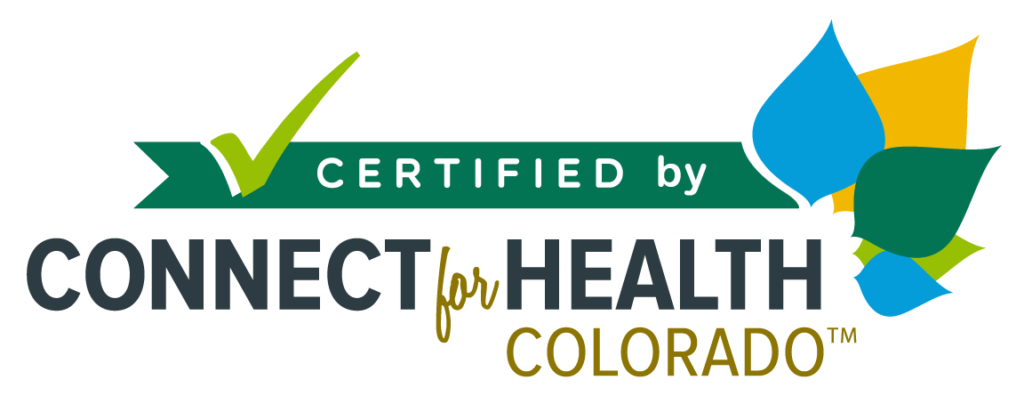FAQs
Health Insurance
Annual open enrollment runs from November 1 to January 15th. This is the only time you can purchase individual health insurance without a qualifying event.
Individual health insurance is coverage that you purchase on your own, on an individual or family basis, as opposed to obtaining through an employer or from a government program like Medicare, Medicaid or Chp.
Individual health insurance is for anyone who doesn’t have access to employer-sponsored or government run health coverage. This includes people who are employed by a small business that doesn’t provide health benefits, people who are self-employed, and people who retire before they are eligible for Medicare and have to get their own personal health insurance until they turn 65.
Individual health insurance is available through Connect for Health Colorado or direct with the insurance carrier. Connect for Health Colorado is the only avenue where you can apply for financial assistance to help reduce your monthly health insurance cost. Our office is certified by Connect for Health CO to help you with the entire process of enrolling or renewing in a health insurance plan.
- Get or lose health coverage through a job or a program like Health First Colorado (Medicaid)
- Married or divorced and lost qualifying insurance.
- Have a child, adopt a child, or place a child for adoption
- Have a change in income (this is based on applying for a subsidy during open enrollment and then having a change in income throughout the year, unless you qualify financially for Medicaid)
- Move
- Have a change in disability status
- Have a change in status as an American Indian or Alaska Native or change your tribal status
- Have a correction to your name, date of birth or Social Security number
- Experience any other changes that may affect your income and household size
- Gain or lose a dependent
- Have a change in tax filing status
- Have a change in citizenship or immigration status
- Are incarcerated or released from incarceration
You must notify your agent and complete your change within 60 days of the event or you will lose the opportunity to enroll in coverage or make changes.
The monthly premium payments for individual health insurance plans vary greatly, depending on the applicant’s age, zip code, income and the type of coverage selected. Medical history and gender are not factors that affect the individual rates.
Medicare
Medicare is a multi-part Federal health insurance program for qualified individuals. You can qualify for coverage if you’re 65 years old, have specific disabilities, or have end-stage renal disease. Once you determine whether or not you want to enroll, you will have to decide which parts you will enroll in. The different parts include the following:
- Part A, also known as hospital insurance, includes health care costs associated with hospital stays and limited stays at a skilled nursing home, skilled home healthcare and hospice care. Part A is part of Original Medicare.
- Part B, also known as the doctor portion of your medical insurance. Covers services from doctors and other healthcare providers, outpatient care, some skilled home healthcare, durable medical equipment and preventive care. Part B is part of Original Medicare.
- Part C, also known as Medicare Advantage, is an alternative to Original Medicare managed by a private insurance company. It becomes your primary coverage; most Advantage Plans include Part D prescription drug coverage. Many Advantage Plans offer additional coverage for dental, vision and hearing and fitness memberships.
- Part D, also known as prescription drug coverage, will help cover the costs of medications. Individual Medicare drug coverage plans are managed by private insurance companies and use different formularies to regulate which medications they’ll cover. Each plan can vary in cost and formulary but must meet certain guidelines set by Medicare with regard to the categories of medications covered.
- Medicare Supplemental Insurance, sometimes referred to as Medigap is a supplemental health insurance program to cover health care costs that Original Medicare does not. You can only purchase Medicare Supplemental insurance if you’re enrolled in Original Medicare. It cannot be used with an Advantage Plan.
The enrollment process can be a little different for everyone. Be sure to check with your Social Security Administration three months before your expected start date of coverage to be sure everything is in order if you are eligible for automatic enrollment. Automatic enrollment is available for you if you:
- Are you already receiving Social Security benefits (at least four months before start)
- Receive U.S. Railroad Retirement Board (RRB) benefits (at least four months before start)
- Are under age 65 but have a Social Security disability for 24 months
- Have amyotrophic lateral sclerosis (ALS or Lou Gehrig’s disease or ESRD)
Open Enrollment to change Medicare Advantage Plans and Prescription Drug Coverage is October 15th to December 7th for a January 1st start date.
